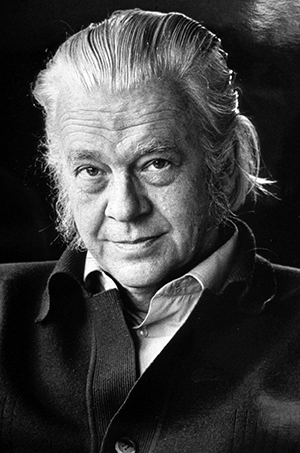
Ernst Friedrich "Fritz" Schumacher (August 16, 1911 – September 4, 1977) was an internationally influential economic thinker, statistician and economist in Britain, serving as Chief Economic Advisor to the UK National Coal Board for two decades. His ideas became popularised in much of the English-speaking world during the 1970s. He is best known for his critique of Western economies and his proposals for human-scale, decentralized and appropriate technologies. His 1973 book Small Is Beautiful: a study of economics as if people mattered is among the 100 most influential books published since World War II. It was translated into many languages, bringing him international fame. Schumacher's basic development theories have been summed up in the catch-phrases Intermediate Size and Intermediate Technology. In 1977 he published A Guide for the Perplexed as a critique of materialist scientism and as an exploration of the nature and organisation of knowledge. (Click here for full Wikipedia article)
-----
An attitude to life which seeks fulfillment in the single-minded pursuit of wealth- in short, materialism- does not fit into this world, because it contains within itself no limiting principle, while the environment in which it is placed is strictly limited.
Any intelligent fool can make things bigger, more complex, and more violent. It takes a touch of genius- and a lot of courage- to move in the opposite direction.
Anything that we can destroy, but are unable to make is, in a sense, sacred, and all our 'explanations' of it do not explain anything.
Eagles come in all shapes and sizes, but you will recognize them chiefly by their attitudes.
Few can contemplate without a sense of exhilaration the splendid achievements of practical energy and technical skill, which, from the latter part of the seventeenth century, were transforming the face of material civilization, and of which England was the daring, if not too scrupulous, pioneer.
Here we are in this wholly fantastic universe with scarcely a clue as to whether our existence has any real significance.
If, however, economic ambitions are good servants, they are bad masters.
Infinite growth of material consumption in a finite world is an impossibility.
It might be said that it is the ideal of the employer to have production without employees and the ideal of the employee is to have income without work.
Many people love in themselves what they hate in others.
Never let an inventor run a company. You can never get him to stop tinkering and bring something to market.
Perhaps we cannot raise the winds. But each of us can put up the sail, so that when the wind comes we can catch it.
Scientific and technological 'solutions' which poison the environment or degrade the social structure and man himself are of no benefit, no matter how brilliantly conceived or how great their superficial attraction.
Small is beautiful.
The cultivation and expansion of needs is the antithesis of wisdom. It is also the antithesis of freedom and peace.
The disease having been caused by allowing cleverness to displace wisdom, no amount of clever research is likely to produce a cure.
The most striking about modern industry is that it requires so much and accomplishes so little. Modern industry seems to be inefficient to a degree that surpasses one’s ordinary powers of imagination. Its inefficiency therefore remains unnoticed.
The printing press is either the greatest blessing or the greatest curse of modern times, sometimes one forgets which it is.
The richer a society, the more impossible it becomes to do worthwhile things without immediate pay-off.
The system of nature, of which man is a part, tends to be self- balancing, self-adjusting, self-cleansing. Not so with technology.
Wisdom demands a new orientation of science and technology towards the organic, the gentle, the non-violent, the elegant and beautiful.
You can either read something many times in order to be assured that you got it all, or else you can define your purpose and use techniques which will assure that you have met it and gotten what you need.
-----
(August 16 is also the birthday of Charles Bukowski, T.E. Lawrence, and James Cameron.)
Categories: E.F. Schumacher, Quotes of the day
Home KGB on Bluesky KGB on Substack
KGB Stuff Commentwear E-Mail KGB
Donate via PayPal

















